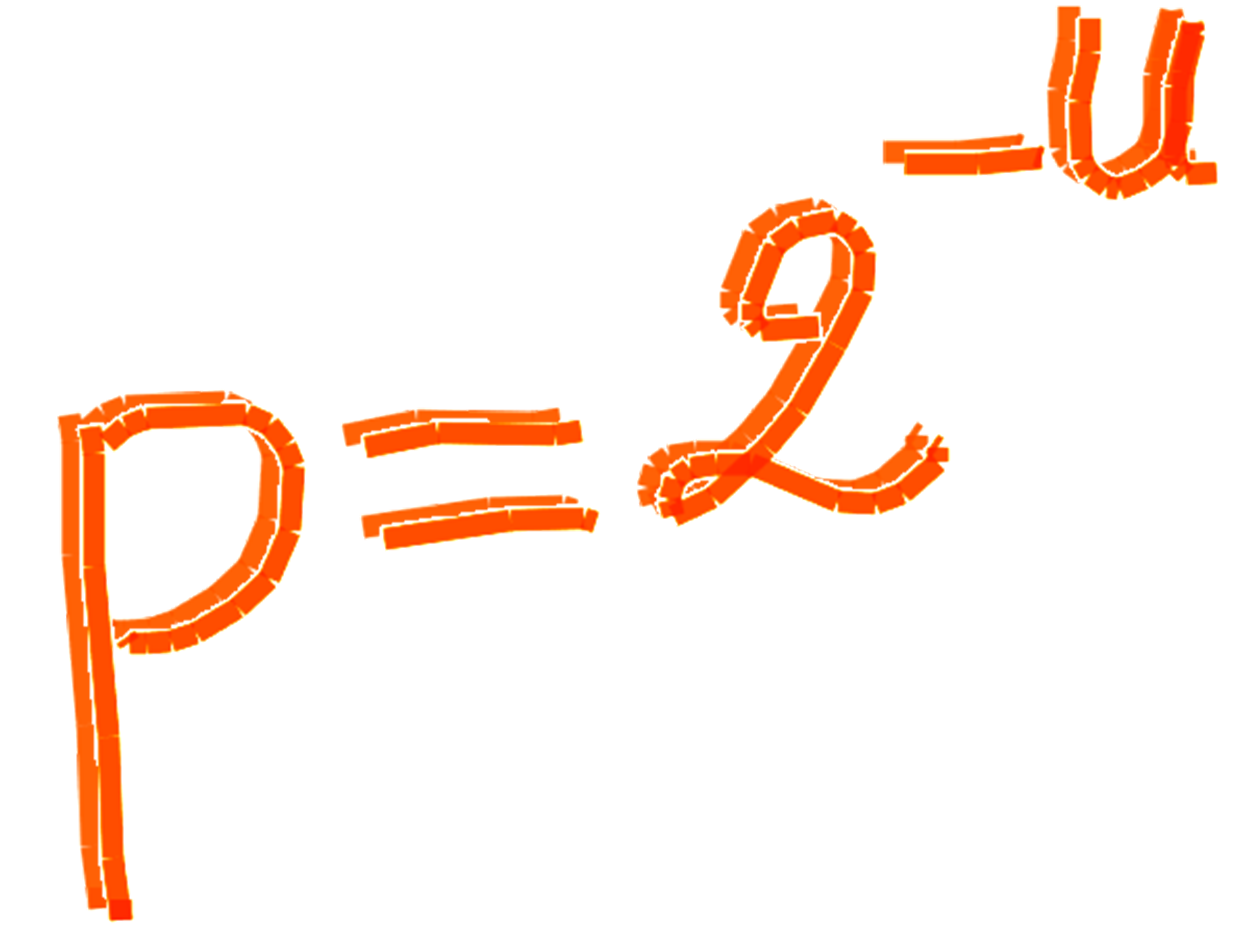SimplicityTheory
Simplicity, Complexity, Unexpectedness, Cognition, Probability, Information by Jean-Louis Dessalles
(created 31 December 2008, updated February 2026)
Situations that depart from norm are unexpected. How much is such a situation or event unexpected?
By definition, unexpectedness U is the difference between generation complexity and description complexity: Cw – C. Let’s compute both terms.
Cw(s) = Cw(H)
C(s) = C(r) + C(f) + C(s|r&f)
U(s) = Cw(H) – C(f) – C(r) Dessalles, J-L. (2008). La pertinence et ses origines cognitives - Nouvelles théories. Paris: Hermes-Science Publications. Dimulescu, A. & Dessalles, J-L. (2009). Understanding narrative interest: Some evidence on the role of unexpectedness. In N. A. Taatgen & H. van Rijn (Eds.), Proceedings of the 31st Annual Conference of the Cognitive Science Society, 1734-1739. Amsterdam, NL: Cognitive Science Society. Saillenfest, A. & Dessalles, J-L. (2015). Some probability judgments may rely on complexity assessments. Proceedings of the 37th Annual Conference of the Cognitive Science Society, to appear. Austin, TX: Cognitive Science Society.


The running nuns (departure from norm)
 In May 2004, while I was jogging, I met two nuns who were running on the jogging trail, not far from the convent. I couldn’t help telling the event when back home.
In May 2004, while I was jogging, I met two nuns who were running on the jogging trail, not far from the convent. I couldn’t help telling the event when back home.Generation complexity Cw
Description complexity C
Finally:
Bibliography
